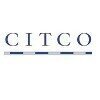Investment Banking Associate
20+ Investment Banking Associate Interview Questions and Answers

Asked in Accenture

Q. State the different types of corporate actions in detail
Corporate actions are events initiated by a publicly traded company that can affect the value of its securities.
Dividends: Distribution of a portion of a company's earnings to its shareholders.
Stock splits: Increasing the number of shares outstanding by dividing existing shares into multiple shares.
Mergers and acquisitions: Combining two or more companies into one or acquiring another company.
Spin-offs: Creating a new independent company by separating a division or subsidiary...read more

Asked in Accenture

Q. How does the primary market differ from the secondary market?
Primary market is where new securities are issued and sold for the first time, while secondary market is where already issued securities are traded among investors.
Primary market involves the sale of new securities by companies to raise capital.
Secondary market involves the trading of already issued securities among investors.
Primary market transactions occur between the issuer and the investor, while secondary market transactions occur between investors.
Primary market is als...read more
Investment Banking Associate Interview Questions and Answers for Freshers

Asked in eClerx

Q. What is the trade lifecycle?
Trade lifecycle refers to the various stages involved in the execution and settlement of a trade.
Trade initiation: The process begins with the decision to buy or sell a financial instrument.
Order placement: The trade is then placed with a broker or through an electronic trading platform.
Trade execution: The order is matched with a counterparty and the trade is executed.
Confirmation: Both parties receive trade confirmations detailing the trade details.
Clearing and settlement: ...read more

Asked in Accenture

Q. What is an asset, and what are the different types of assets?
An asset is a resource with economic value that an individual, corporation, or country owns or controls with the expectation that it will provide future benefit.
Assets can be tangible, such as property, equipment, or inventory, or intangible, such as patents, trademarks, or goodwill.
They can also be current, such as cash or accounts receivable, or long-term, such as investments or real estate.
Assets are typically classified on a balance sheet as either current or non-current....read more
Asked in Quantum Leap Learning Solutions

Q. What is the difference between net profit and gross profit?
Net profit is the profit after all expenses including taxes, while gross profit is the profit before deducting expenses.
Gross profit is the revenue minus the cost of goods sold
Net profit is the gross profit minus all expenses including taxes
Gross profit is used to calculate gross profit margin, while net profit is used to calculate net profit margin
Example: A company has revenue of $100,000 and cost of goods sold of $60,000. The gross profit is $40,000. If the company has add...read more

Asked in Incedo

Q. What is the difference between a general partner and a limited partner?
General partners have management control and unlimited liability, while limited partners have no management control and limited liability.
General partners have unlimited liability for the debts and obligations of the partnership.
Limited partners have limited liability, meaning they are only liable up to the amount of their investment.
General partners have management control and are actively involved in the day-to-day operations of the business.
Limited partners have no managem...read more
Investment Banking Associate Jobs




Asked in Accenture

Q. Explain what OTC trades are.
OTC trades are private transactions between two parties without the involvement of an exchange.
OTC stands for Over-The-Counter
OTC trades are not regulated by an exchange
OTC trades are negotiated directly between two parties
OTC trades are typically used for derivatives, bonds, and other securities
OTC trades are not publicly disclosed
OTC trades can be more flexible than exchange-traded transactions

Asked in Incedo

Q. What do you know about private equity?
Private equity involves investing in privately held companies to acquire ownership stakes and drive growth.
Private equity firms raise capital from investors to acquire ownership stakes in private companies
They aim to drive growth and improve operations to increase the value of their investments
Private equity investments are typically held for a number of years before being sold or taken public
Private equity firms often use leverage to finance acquisitions, which can increase ...read more
Share interview questions and help millions of jobseekers 🌟

Asked in LexaTrade

Q. Is it possible to get your money back?
Yes, it is possible to get your money back in certain situations.
Yes, you can get your money back if you have a refund policy in place.
You may also be able to get your money back through a chargeback on your credit card.
In some cases, you can negotiate a refund with the seller or service provider.

Asked in Verity Knowledge Solutions

Q. What is CFO? How do you calculate it
CFO stands for Cash Flow from Operations. It is a measure of a company's ability to generate cash from its core business activities.
CFO is calculated by starting with net income and adding back non-cash expenses (such as depreciation and amortization) and adjusting for changes in working capital.
Formula: CFO = Net Income + Non-cash Expenses + Changes in Working Capital
CFO is a key metric used by investors and analysts to assess a company's financial health and sustainability....read more

Asked in Broadridge Financial Solutions

Q. What is the trading cycle?
The trading cycle refers to the process of buying and selling securities on the financial markets.
It involves various steps such as order placement, execution, clearing, and settlement.
Order placement: Investors place buy or sell orders through brokers or electronic trading platforms.
Execution: The orders are matched with counterparty orders and executed at the prevailing market price.
Clearing: The trade details are confirmed, and the obligations of the buyer and seller are d...read more

Asked in BNY

Q. What is corporate action?
Corporate action refers to any event initiated by a publicly traded company that impacts its shareholders and can include stock splits, dividends, mergers, acquisitions, and more.
Corporate actions are events initiated by publicly traded companies.
They can include stock splits, dividends, mergers, acquisitions, spin-offs, rights issues, etc.
These actions impact the shareholders and can affect the company's stock price and ownership structure.
Examples of corporate actions inclu...read more
Asked in FundTQ

Q. Can you create a pitch deck?
Yes, I can make a pitch deck.
I have experience in creating pitch decks for various clients.
I understand the importance of a clear and concise message.
I can effectively use visuals and data to support the pitch.
I am proficient in PowerPoint and other presentation tools.
I can tailor the pitch deck to the specific audience and purpose.

Asked in Imarticus Learning

Q. Why Investment Banking?
Passion for finance, deal-making, and strategic thinking drive my interest in Investment Banking.
Fascination with financial markets and transactions
Opportunity to work on high-profile deals and complex financial structures
Desire to utilize analytical skills and strategic thinking in a fast-paced environment

Asked in Nangia Andersen

Q. Walk me through a three-statement model.
A 3 statement model is a financial model that links the income statement, balance sheet, and cash flow statement to forecast a company's future performance.
Start with the income statement to project revenues, expenses, and net income
Use the income statement to calculate operating profit and EBITDA
Move to the balance sheet to forecast assets, liabilities, and shareholders' equity
Use the balance sheet to calculate working capital and debt levels
Finally, use the cash flow statem...read more

Asked in Verity Knowledge Solutions

Q. What is the linkage between the three financial statements?
The linkage between the 3 financial analysis involves understanding how the income statement, balance sheet, and cash flow statement are interconnected.
Income statement shows the company's profitability over a period of time.
Balance sheet provides a snapshot of the company's financial position at a specific point in time.
Cash flow statement tracks the inflow and outflow of cash within the company.
Changes in one statement can impact the others, such as increased revenue on the...read more

Asked in SG Analytics

Q. What are deferred expenses?
Deferred expenses are costs that are paid in advance but are recognized as expenses over a period of time.
Deferred expenses are also known as prepaid expenses.
They are recorded as assets on the balance sheet until they are used or consumed.
Examples of deferred expenses include prepaid rent, prepaid insurance, and prepaid advertising.
Deferred expenses are gradually recognized as expenses through the process of amortization or allocation.
They are typically classified as current...read more

Asked in Eviden

Q. What is Cost Accounting?
Cost accounting is a branch of accounting that focuses on analyzing and controlling costs within a business.
It involves tracking and recording all costs associated with producing a product or providing a service.
Cost accountants analyze cost behavior, cost-volume-profit relationships, and cost variances.
It helps management make informed decisions about pricing, budgeting, and resource allocation.
Examples include determining the cost of goods sold, calculating the break-even p...read more

Asked in Statestreet HCL Services

Q. What is investment banking?
Investment banking involves providing financial services to corporations, governments, and other institutions, including raising capital, mergers and acquisitions, and advisory services.
Investment banking helps companies raise capital through issuing stocks and bonds
It also involves advising companies on mergers and acquisitions
Investment bankers provide financial advisory services to clients

Asked in SG Analytics

Q. What is the difference between a pitchbook and Information Memorandums (IMs)?
Pitchbooks are marketing materials used to pitch potential clients, while IMs are detailed documents provided to potential investors.
Pitchbooks are used to showcase a firm's capabilities, experience, and potential deal opportunities.
IMs provide in-depth information about a specific investment opportunity, including financials, market analysis, and potential risks.
Pitchbooks are typically shorter and more visually appealing, while IMs are longer and more detailed.
Pitchbooks ar...read more

Asked in Incedo

Q. What are bad debts?
Bad debts are debts that are unlikely to be recovered by a company or individual.
Bad debts are typically the result of customers failing to pay their debts on time or at all.
Companies often write off bad debts as a loss on their financial statements.
Bad debts can negatively impact a company's cash flow and profitability.
Examples of bad debts include unpaid invoices, defaulted loans, and credit card debt that is not repaid.

Asked in Coforge

Q. What is BFSI Domain
BFSI stands for Banking, Financial Services, and Insurance domain which includes institutions and companies providing financial services.
BFSI domain encompasses banking, financial services, and insurance sectors
It includes institutions like banks, credit unions, insurance companies, investment funds, and stock brokerages
Professionals in BFSI domain deal with financial products, services, regulations, and risk management
Examples include JPMorgan Chase, Goldman Sachs, State Far...read more

Asked in Citco

Q. What is a hedge fund?
A hedge fund is an investment fund that pools capital from accredited individuals or institutional investors and invests in a variety of assets.
Hedge funds typically use a variety of strategies to achieve high returns, including leverage, short selling, and derivatives trading.
They are known for their flexibility in investment strategies and ability to generate high returns, but also come with higher fees and risks.
Hedge funds are usually only available to accredited investor...read more

Asked in Genpact

Q. Golden rules of Accounting
Golden rules of Accounting are basic principles that guide the recording of financial transactions.
Debit what comes in, credit what goes out (Real Accounts)
Debit the receiver, credit the giver (Personal Accounts)
Debit all expenses and losses, credit all incomes and gains (Nominal Accounts)
Asked in Fuld & Company

Q. What is the PE ratio?
PE ratio is the ratio of a company's stock price to its earnings per share (EPS).
PE ratio helps investors determine the value of a company's stock.
A high PE ratio may indicate that a stock is overvalued, while a low PE ratio may indicate undervaluation.
PE ratio can vary by industry and should be compared to peers within the same industry.
Formula: PE ratio = Stock price / EPS
Example: If a company's stock price is $50 and its EPS is $5, then its PE ratio is 10.

Asked in Tech Mahindra

Q. Different asset classes
Asset classes are categories of investments with similar characteristics, influencing risk and return profiles.
Equities: Stocks representing ownership in companies, e.g., Apple, Google.
Fixed Income: Bonds providing regular interest payments, e.g., U.S. Treasury bonds.
Real Estate: Physical properties or REITs, e.g., residential or commercial buildings.
Commodities: Physical goods like gold, oil, or agricultural products.
Cash and Cash Equivalents: Liquid assets like savings acco...read more

Asked in Tech Mahindra

Q. Different types of equities
Equities represent ownership in a company, with various types including common, preferred, and convertible stocks.
Common Stock: Represents ownership and voting rights; e.g., shares of Apple Inc.
Preferred Stock: Offers fixed dividends and priority over common stock in liquidation; e.g., Bank of America preferred shares.
Convertible Stock: Can be converted into a predetermined number of common shares; e.g., convertible bonds issued by Tesla.
Growth Stocks: Companies expected to g...read more

Asked in Anand Rathi Global Finance

Q. Mutual fund meaning
A mutual fund is a professionally managed investment fund that pools money from many investors to purchase securities.
Mutual funds offer diversification by investing in a variety of securities
Investors can buy shares of mutual funds, which represent a portion of the holdings in the fund
Mutual funds are managed by professional portfolio managers
Types of mutual funds include equity funds, bond funds, and money market funds
Interview Questions of Similar Designations
Interview Experiences of Popular Companies






Calculate your in-hand salary
Confused about how your in-hand salary is calculated? Enter your annual salary (CTC) and get your in-hand salary


Reviews
Interviews
Salaries
Users










